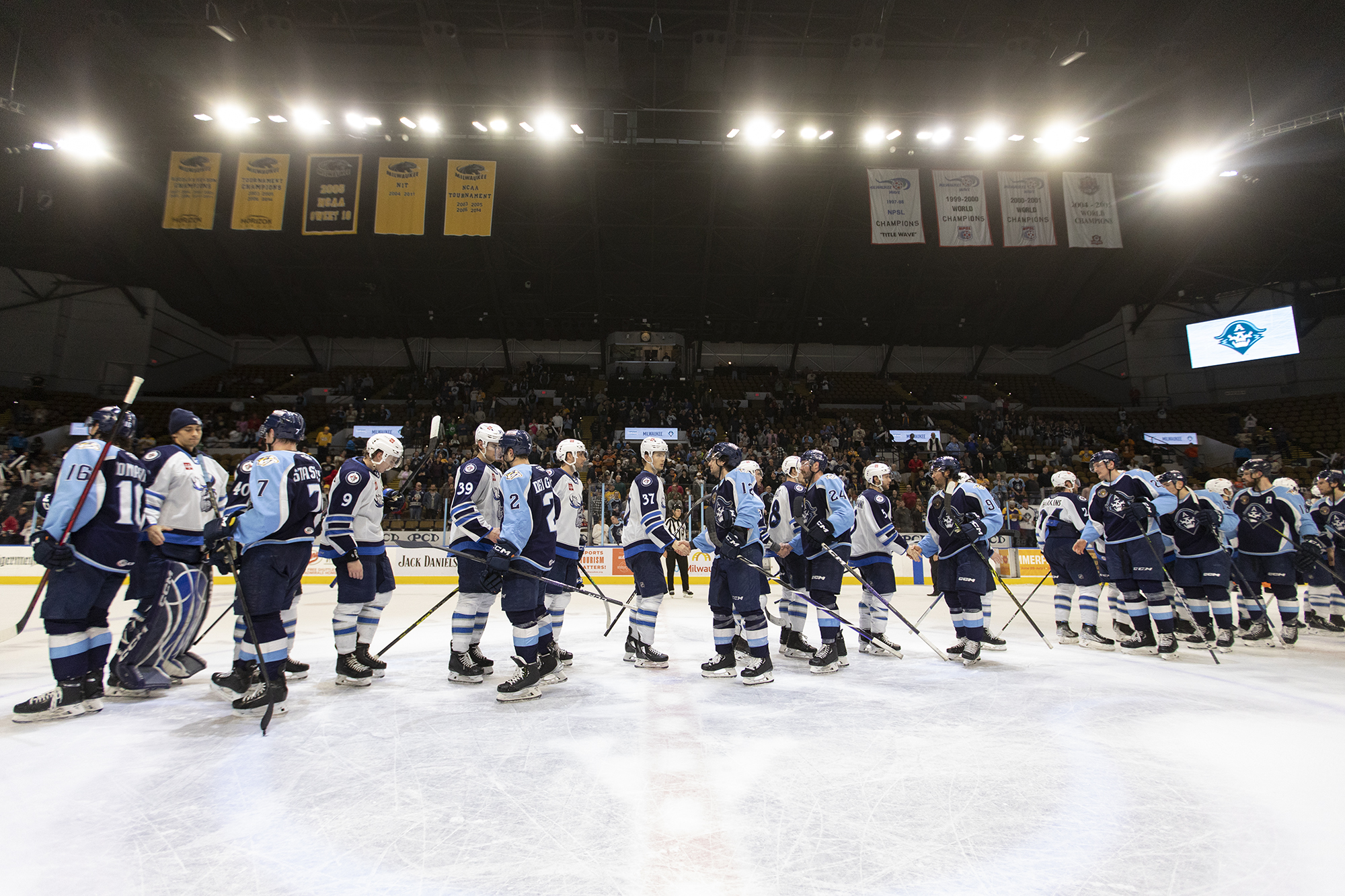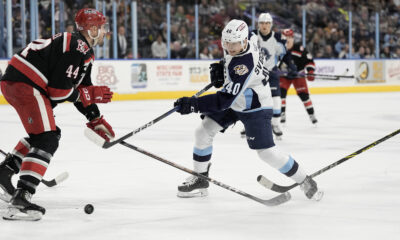For the second season in a row, the Milwaukee Admirals have won a playoff series. That doesn’t sound like much of an accomplishment, but for a franchise that lost in the first round or missed the postseason eight years in a row, it’s significant.
After dispatching the Manitoba Moose in five games, the Admirals will now take on the Texas Stars in the Central Division Finals. The Stars just barely beat out Milwaukee for the regular-season division title, finishing with a 40-20-12 record and 92 points. These two teams were as even as they come during the year as the Ads’ finished with a 4-3-1 record against Texas.
With Milwaukee’s reinforced roster in tow, this will be a fascinating series to watch. I broke it all down with the help of Stephen Meserve from 100 Degree Hockey.
Forwards
A lot was made about Milwaukee’s forward depth heading into its first series with Manitoba. With 18 forwards available, there were going to be some impact players left on the sidelines. But ultimately, Karl Taylor stuck with a core group, icing just 14 forwards all series.
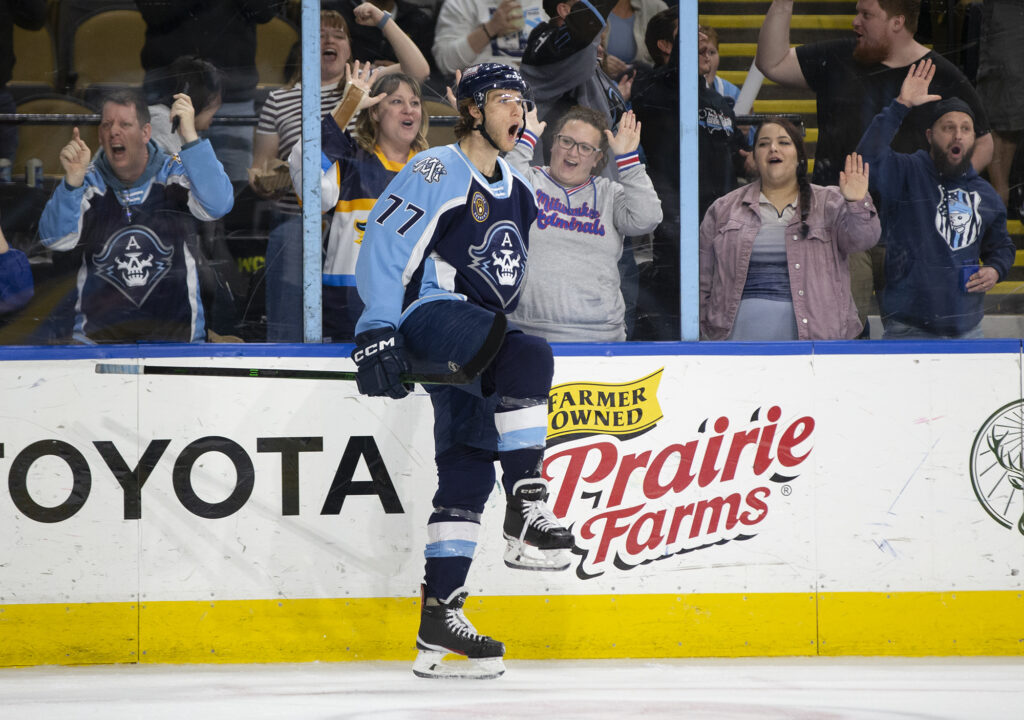
I would expect the composition of the forward lineup to remain much the same against the Stars. The x-factors that Taylor needed to lead the way on the scoresheet did as Kiefer Sherwood, Luke Evangelista, Zach Sanford, and Mark Jankowski combined for 18 points in five games. Behind them, the Admirals’ depth was apparent; all but three forwards (including Isaac Ratcliffe who play just one game) recorded a point.
Regardless, three big questions remain. First, where’s Phil Tomasino? Nashville’s first-round pick in 2019 totaled just one assist in the opening series and recorded a paltry seven shots on goal. Getting his scoring legs going will help against a deeper Texas team. Second, what do you do with Anthony Angello? The veteran forward was a star for Milwaukee down the stretch, posting 12 points in 17 games. But he was similarly invisible against Manitoba, and I wonder if he and Isaac Ratcliffe don’t swap places for at least game one. And finally, how much will John Leonard’s absence be felt? Leonard was arguably Milwaukee’s best forward in the regular season, but he missed the last two games of the Manitoba series.
Strategically, the Admirals’ forwards found and exploited a particular weakness against the Moose. Of the ten five-on-five goals Milwaukee scored, seven were notched within ten seconds of a turnover, and eight came within ten seconds of a zone entry. The Admirals’ forwards were fast, drove to the net, and were able to catch Manitoba’s defenders off guard a lot of the time. Karl Taylor will only want to see more of that against a stingier Texas defense and a Stars’ forward group that can match Milwaukee’s scoring touch.
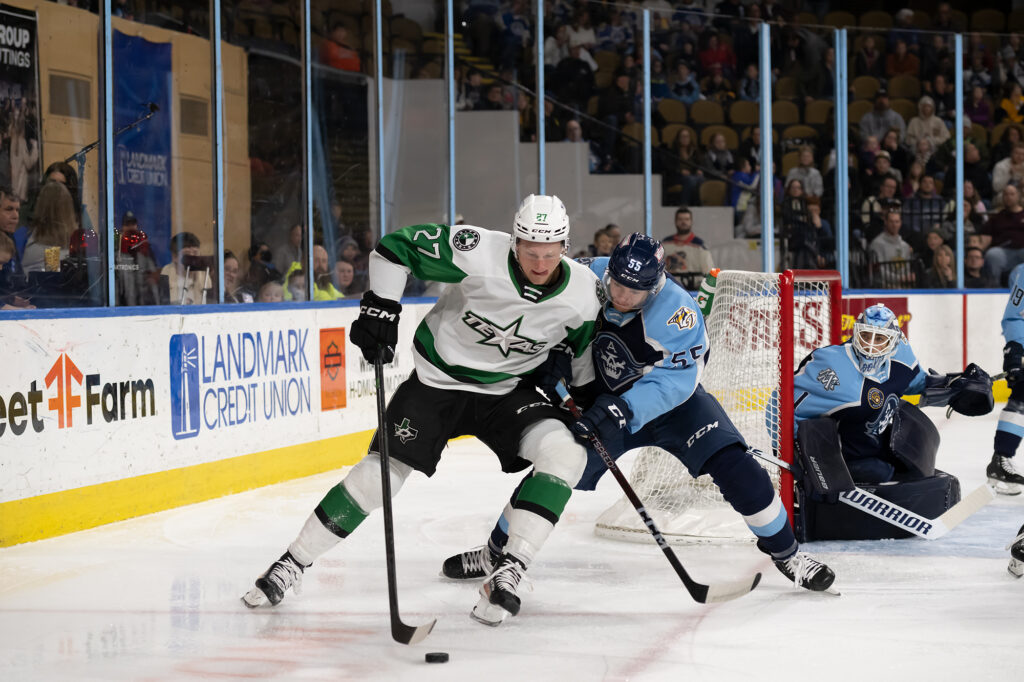
Much like Milwaukee, Texas is littered with offensive talent. From 100 Degree Hockey:
It’s cliche to say a team rolls four lines, but Texas truly does. Their fourth line is Riley Tufte, Rhett Gardner, and Nick Caamano—all three of whom have played NHL games. Gardner is one of the best defensive forwards in the AHL and drives possession in a stifling way. Offensive weapons like Riley Barber and Tanner Kero had banner years while rookies like Mavrik Bourque and Matej Blumel are coming on strong.
Barber led the Stars in scoring in the regular season, posting 32 goals and 64 points in 69 games, and he added another three points in Texas’ first-round sweep of the Rockford IceHogs. The Stars’ most consistently paired line will be the trio to watch for: Marian Studenic, Oskar Back, and Curtis McKenzie. Those three led the way with nine points in three games in the previous round and will be counted on to provide an offensive spark for Texas when needed.
Defenders
Milwaukee’s bend-don’t-break defense was on full display in the previous round. The Admirals surrendered an average of 30.6 shots on goal per contest but allowed just six five-on-five goals in five games. Karl Taylor rolled with his usual rotation outside of Keaton Thompson filling in for Roland McKeown and Kevin Gravel in four of those contests.
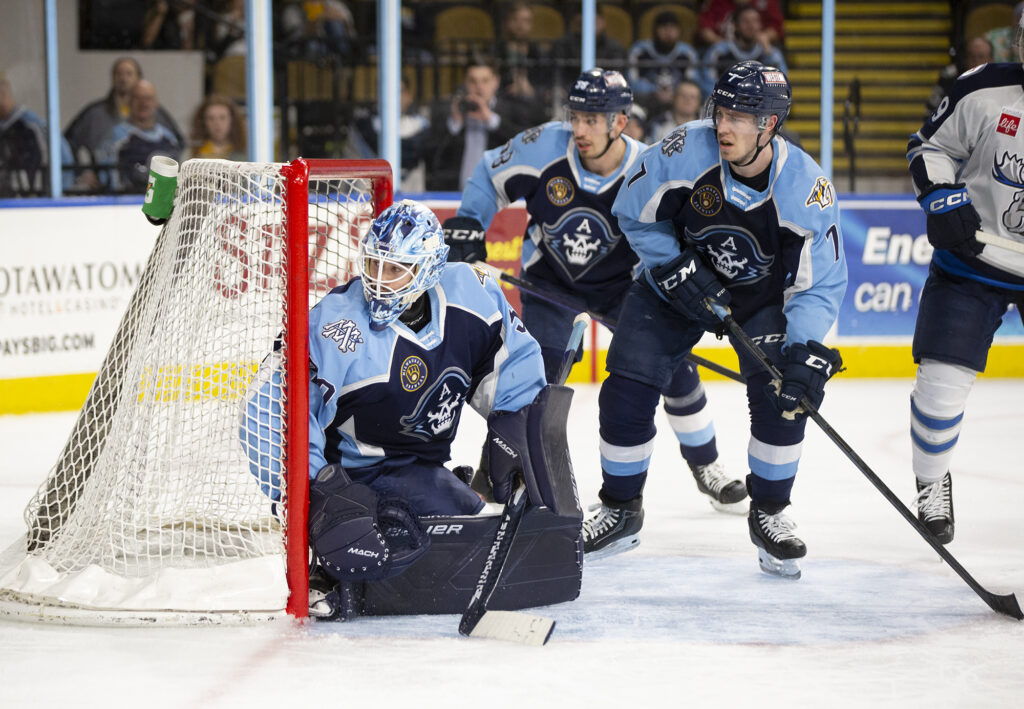
Jordan Gross led the way for this group against Manitoba, posting two goals and seven points in five games. Milwaukee got significant offensive contributions from their blue line, including 15 total points and a dramatic series-winning goal from Spencer Stastney.
Despite their success in round one, all six even-strength goals allowed by the Admirals can be blamed on the same critical failure. Every time the Moose found the back of the net at five-on-five, it came seconds after a failed attempt to clear the zone or a mistake in transition. Manitoba was able to do exactly what I predicted: cut off the boards between Milwaukee’s two defenders and/or the strong-side winger. That forecheck disrupted Milwaukee’s breakouts, bunched their forwards up in transition, and allowed Manitoba to reverse the ice quickly. Those mistakes will have to be mitigated against an even more dangerous Texas team.
Expect Milwaukee to roll with their same pairs to start the series—Del Gaizo-McKeown, Gross-Thompson, Wilsby-Stastney—pending Kevin Gravel’s availability.
The Stars’ blueline is a veteran group that chipped in eight points in three games in the previous round. Will Butcher and Ben Gleason combined for 76 points in the regular season, and Oskari Laaksonen, who was relatively quiet on the scoresheet all year, added three points against Rockford. But Texas’ top pair of Ryan Shea and Alex Petrovic will be the real headache for the Admirals; they’re an excellent duo at both ends of the ice at five-on-five and will likely be deployed against Milwaukee’s top offensive weapons.
Goalies
Against the Moose, Yaroslav Askarov was exactly what the Admirals needed him to be. He finished the round with a 0.915 save percentage and stopped 1.11 goals above average. Unsurprisingly, he’ll be back in the starter’s crease against Texas.
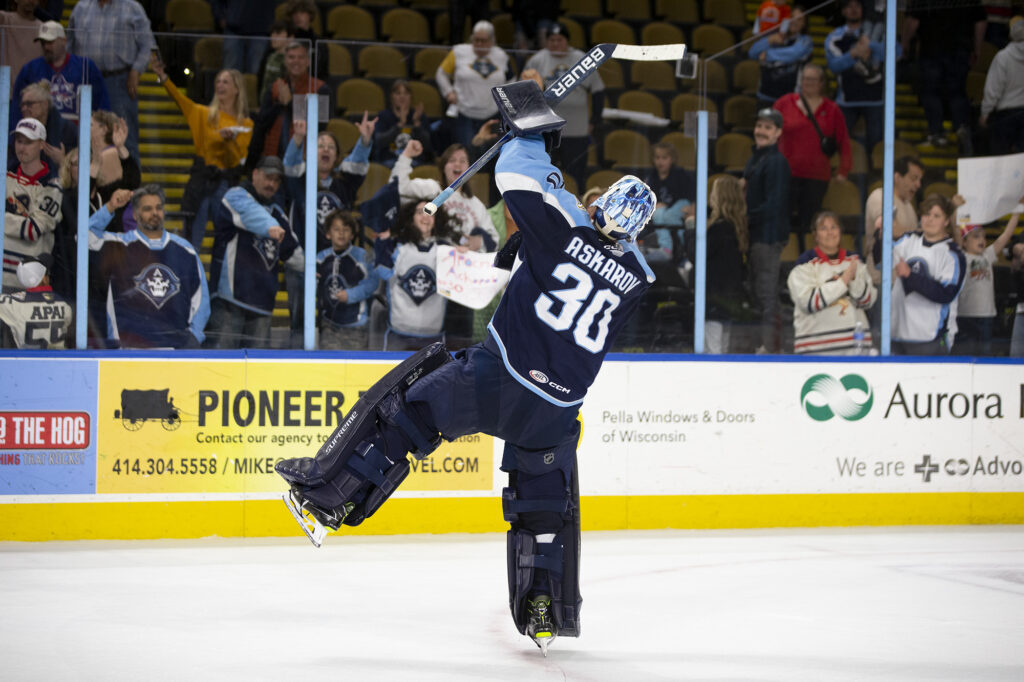
Matt Murray is the Stars’ go-to goaltender, and he was stellar against Rockford in the previous round. Murray posted a 0.929 save percentage and stopped 1.81 goals above average. But is his success more a product of the Stars’ defense? From 100 Degree Hockey:
Texas does generally play stifling defense. However, Murray was tested heavily at times with Rockford pushing late in games; he was cool and composed. It’s a recency bias comparison, but I see a lot of Jake Oettinger in him with his composure and mental recovery.
Special Teams
Milwaukee was arguably the best special-teams group in the AHL in the regular season, and that success very much continued against the Moose. The Admirals posted a stellar 31.3% power-play success rate, scoring on five of their 16 opportunities, and a division-best 85.0% penalty kill rate.
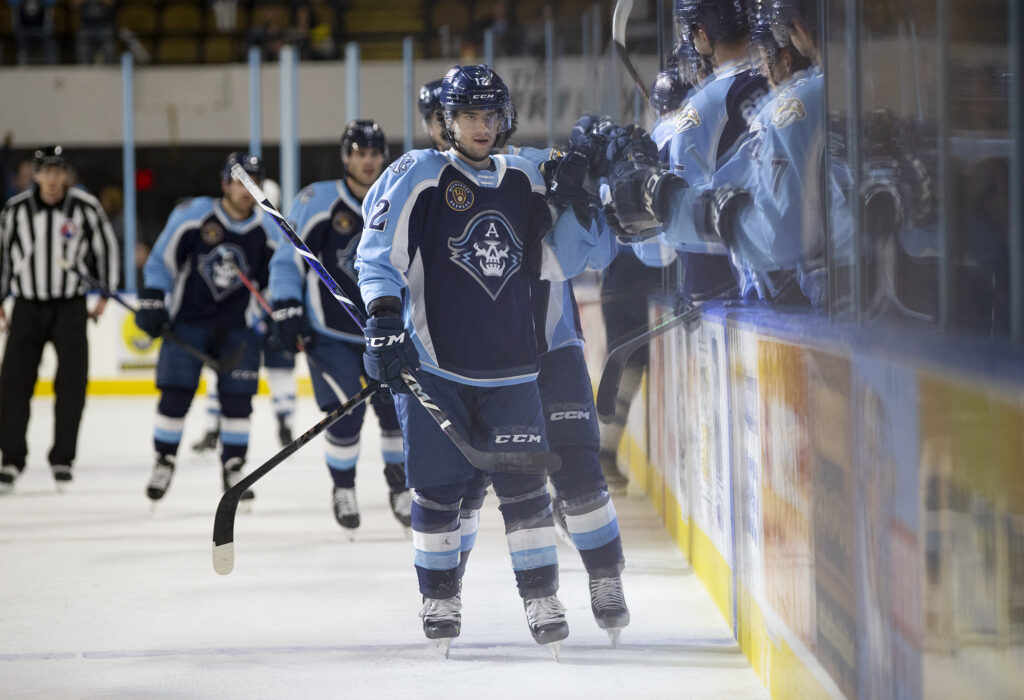
Texas finished off Rockford with a 20.0% power-play success rate and an 81.8% penalty-kill rate:
Texas’ penalty kill drives possession from the faceoff dot with strong win percentages to start. They are aggressive and ready to push play in the other direction. Tufte and Gardner are always the first group of penalty-killing forwards, and the Stars rotate all six of their defenders when down a man.
The power play has been up and down all season. The tools are clearly there, but Texas’ schemes were sorted out by the league early in the year, and they had to continue shuffling.
One other thing to note is the fact that Texas does well to not take a ton of penalties; however, Milwaukee takes even fewer. It seems that penalties will be few and far between, increasing the importance of the power play for both teams.
X-Factors
This series, I anticipate, will be a brutal fight at even strength with neither team budging much. So, as Stephen from 100 Degree Hockey correctly pointed out, special teams will be crucial for the Admirals. If they can keep their power-play units humming, I like their chances to move on to the conference finals.
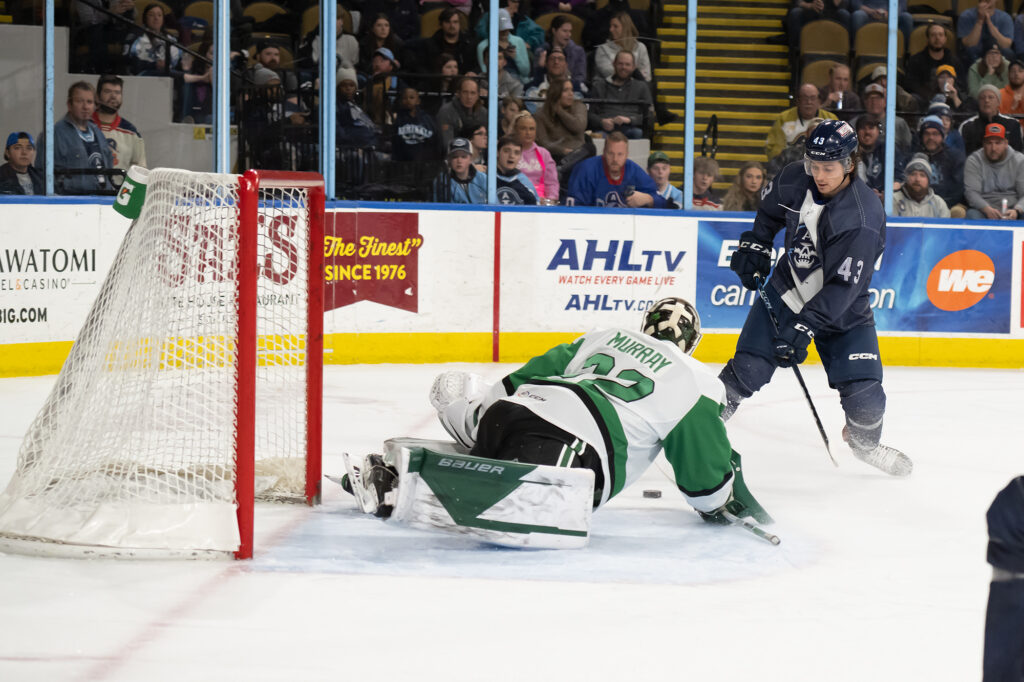
For the Stars, here’s what Stephen had to say:
Matt Murray is the most untested part of the roster. The forward group is balanced, and the defense is experienced. Murray is a rookie goalie with another rookie backing him up. He’s shown he’s up to the task through the regular season, but this is the postseason and you just never know until you know.
Series Schedule
As the higher seed, Texas chose to play games one and two on the road. The series schedule is as follows:
- Friday, May 12: Milwaukee vs. Texas — 7:00 p.m. CDT
- Saturday, May 13: Milwaukee vs. Texas — 6:00 p.m. CDT
- Wednesday, May 17: Milwaukee @ Texas — 7:00 p.m. CDT
- Friday, May 19: Milwaukee @ Texas — 7:00 p.m. CDT
- Sunday, May 21: Milwaukee @ Texas — 7:00 p.m. CDT
All statistics are courtesy of eliteprospects.com, theahl.com, ahltracker.com, or manually tracked.

